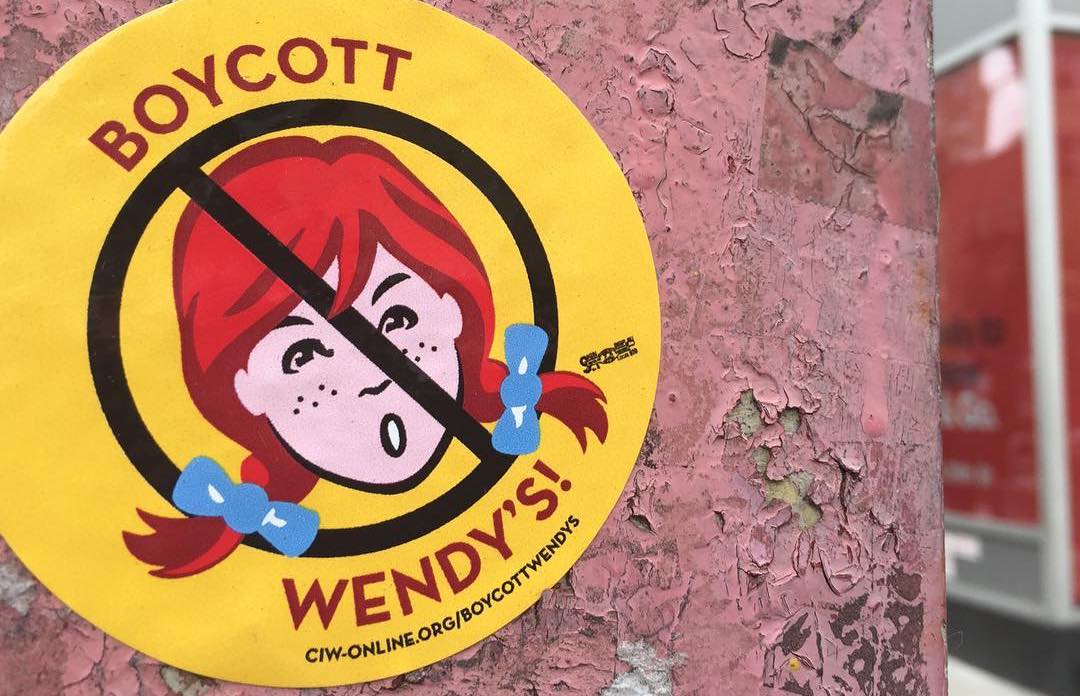Fast food is inexpensive, convenient, and to many, can taste really, really good. So good, in fact, that even award-winning hip-hop artist Chance the Rapper had to tweet about how badly he wanted Wendy’s to bring back spicy chicken nuggets, a menu item that was discontinued back in 2017. The fast food chain, which is infamous for its quick-witted humor, fortunately responded to the rapper‘s request, saying that if its tweet reached two million likes, Wendy’s would officially bring back the nuggets.
Now, thanks to Chance the Rapper and the power of social media, spicy chicken nuggets are back on the menu. And it wouldn’t be the first time a fast food chain gave the people what they wanted. In 2018, after it was featured in an episode of Rick and Morty, McDonald’s rolled out Szechuan sauce at locations across the country. However, despite these fun interactions between fast food companies and their customers, there’s also been public pushback against a certain chain with celebrity-led boycotts on social media.
One of the celebrities coming for Wendy’s is comedian Amy Schumer, who shared a post on Instagram revealing not only alleged farmer policies that leave workers unprotected from sexual assault, but also the announcement of her newborn boy.
“Hey! We love @chancetherapper and hate to be the ones to tell him that Wendys is the only fast food chain refusing to protect farmworker women from sexual assault and rape in the fields. This is true,” Schumer wrote. “Please read that sentence again. Message for the people in charge: Instead of spicy nuggets, we want food that is harvested with dignity NOT violence.”
“Please join the @fairfoodprogram and #BoycottWendys link in my bio of how you can help.”
Schumer isn’t the only celebrity taking a stance.
Actress Alyssa Milano took to Twitter to respond to Chance’s tweet to Wendy’s about bringing the spicy chicken nuggets back.
Although the call to boycott Wendy’s has reignited the past few days because of the spicy chicken nugget comeback, the campaign about Wendy’s lack of involvement in the Coalition of Immolakee Workers’ Fair Food Program — which ensures the safety, proper wages, and working conditions of farmers and farmworkers — has been around for quite some time.
According to The New York Times, the program benefits 35,000 workers and has also helped change the Florida tomato industry.
“They’ve already been successful in a measurable way at effectively eliminating modern-day slavery and sexual assault, and greatly reducing harassment,” Susan L. Marquis, dean of the Pardee RAND Graduate School in Santa Monica, California, told The New York Times.
Although the tomatoes typically cost a few more cents per pound, laborers are paid at least the local minimum wage, but major fast food chains such as McDonald’s, Subway, and Burger King have hopped on board.
And Yum Brands, which includes Taco Bell, Pizza Hut, and KFC.
That seems to be almost all the players in the fast good game, except for Wendy’s.
In fact, in late 2014, the fast food chain switched over from Florida tomatoes to fruit farmed in Mexico.
Heidi Schauer, a Wendy’s spokeswoman, told The New York Times in an email that the fast food company requires the tomato suppliers it works with to submit third-party reviews of their human rights and labor practices.
Schauer also told The New York Times that Wendy’s has committed to buying tomatoes from indoor greenhouse farms mostly based in the United States and Canada.
However, the #BoycottWendys campaign lives on and has made its way to college campuses.
In January 2019, the University of Michigan opted to not have Wendy’s renew its lease on campus because of its employee labor conditions.
Students and supporters of the boycott have also gathered at the University of North Carolina to give Wendy’s the boot from campus.
But officials at the University of North Carolina and the University of Florida claimed the Wendy’s on campus use a tomato supplier called Aramark, which is involved in the Fair Food Program.
Although Wendy’s is the center of attention when it comes to its farmers’ working conditions, there are other big companies, such as Costco and Kroger, that are also not meeting Fair Food Program standards. The more you know!

